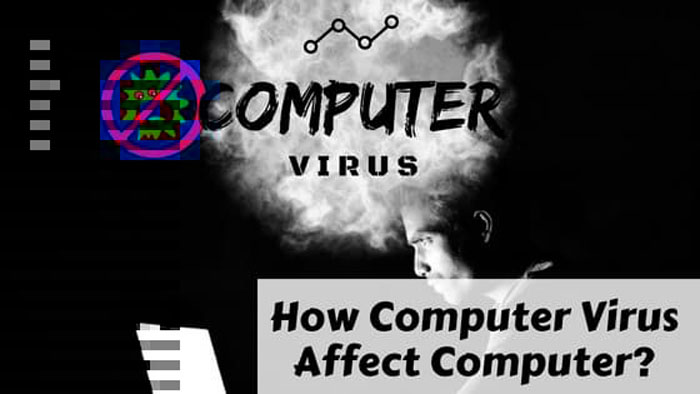
Table of Contents
What is Computer Virus?
One of the most feared bad dreams for any PC owner is virus infections, spyware or malware. A PC virus is an executable record or program that has the ability to self-duplicate and additionally self-adjust inside the system with its sole point being interruption of regular computing activities.
These infections may duplicate inside the computer system, memory and RAM region. It is imperative to recognize that everything concerning a PC infection is fundamentally unapproved.
In more technical terms a computer virus is a harmful piece of malware that is specifically designed to hamper the normal working of PC and is programmed to spread from one system to another.

How do computer virus spread?
In the present continually associated world you can get a PC infection from numerous points of view, some more clear than others.
Virus infections can be spread through email and instant message connections, Internet document downloads, web-based social networking trick interfaces, and even through shady App downloads.
Infections can also be distributed masked as links of socially shareable substance, for example, interesting pictures, welcoming cards, or audio and video files.
How does computer virus affect PC?
The harmful effects of virus can range from intricate effects to other basic ones. The level of severity lies on the degree of harm that the virus has on the computer.
Below mentioned are few of the most prominent effects of virus infections:
- Virus may weaken certain applications and programs, ruining their capacity to work smoothly. In some cases they may also result in inaccurate outcomes.
- Virus may likewise focus on the data stored on the hard drive followed by complete crashes.
- On the documents side virus may delete, alter and corrupt them making them inaccessible.
- A virus infection can likewise impact the normal operations of the computer system. Consume a huge amount of RAM memory making it incredibly slow.
- Inconsistent computer behavior with frequent crashes and screen freezing irregularities.
- Annoying and disturbing notifications and ads getting displayed on the computer screen.
- Multiple windows and surprising applications may appear on the computer screen.
- It may modify files saved on hard drives, and computer screen.
How would I secure my framework against the infection?
Presently, that you know, agreeing with the presence of harmful virus may have critical results on the general well being of your computer system.
Here are couple of basic courses by which you can shield your framework from infection assault.
Utilize Antivirus Protection
Having a vigorous antivirus program introduced on your computer system is an absolute necessity and should not be overlooked at any cost.
The network landscape and mechanical world are loaded with an entire group of infection and other harmful malware.
Antivirus programs are particularly intended to check, recognize and remove all current virus and furthermore gives ongoing protection from zero-day dangers.
Utilizing an effective malware removal tool arms you against PC dangers and makes your framework less vulnerable against harmful threats.
Fortunately, these days a wide assortment of antivirus programs are available for security against the particular kind of infection. Most regular ones are an Anti-Ransomware program, Adware removal tool, best anti-adware and many more.
Practice Proper Computer Hygiene
Aside from allowing your antivirus ensure your PC health, it is essential to follow basic wellbeing tips. A couple of basic computing hygiene tips are specified underneath for your reference:
1. Don’t simply tap on any connection:
Do not open haphazard web links shared over Facebook, got as email connections or the ones accessible on obscure web locations. Regularly they are stacked with infection, be completely certain before opening any link.
2. Keep your system software updated:
No matter how futile this sounds to you, having up-to-date system software’s is basic for computer security. Regular and periodic updates fill security holes and diminish the odds of infection assault.
3. Don’t simply open any email:
Following the email convention is very basic for the strength of your PC. Try not to open any messages got from obscure senders and guarantee that you promptly delete such messages.
4. Use Pop-up Blockers:
Unwanted system notifications and pop-up banners are noticeable carriers of infection diseases. Utilizing a productive pop-up blocker decreases the odds of infection assault.
5. Always use secure network:
Open and public networks are often loaded with malicious virus, make sure that you only use URLs that read “HTTPS” and not “HTTP”.
An unprotected PC looks like an open gateway for PC contaminations.
Insights exhibit that countless computer systems these days are polluted by virus infection, and it is rising worry for all web customers and online surfers like us.
Keeping an infection from getting into your PC is a ton less requesting than deleting the current ones. With appropriate watchfulness, you can fend off irritating infection from your PC.
Cautiousness and utilization of a multi-layered framework security programming can ensure your system security against destructive PC threats.
Author Bio : Prachi Dani is a content writer at InnovanaThinklabs Ltd. She loves to experiment with new technologies and latest software’s. She has a special affinity for shopping excursions. When not busy with her pen, she loves to explore cities and travel to offbeat places.






